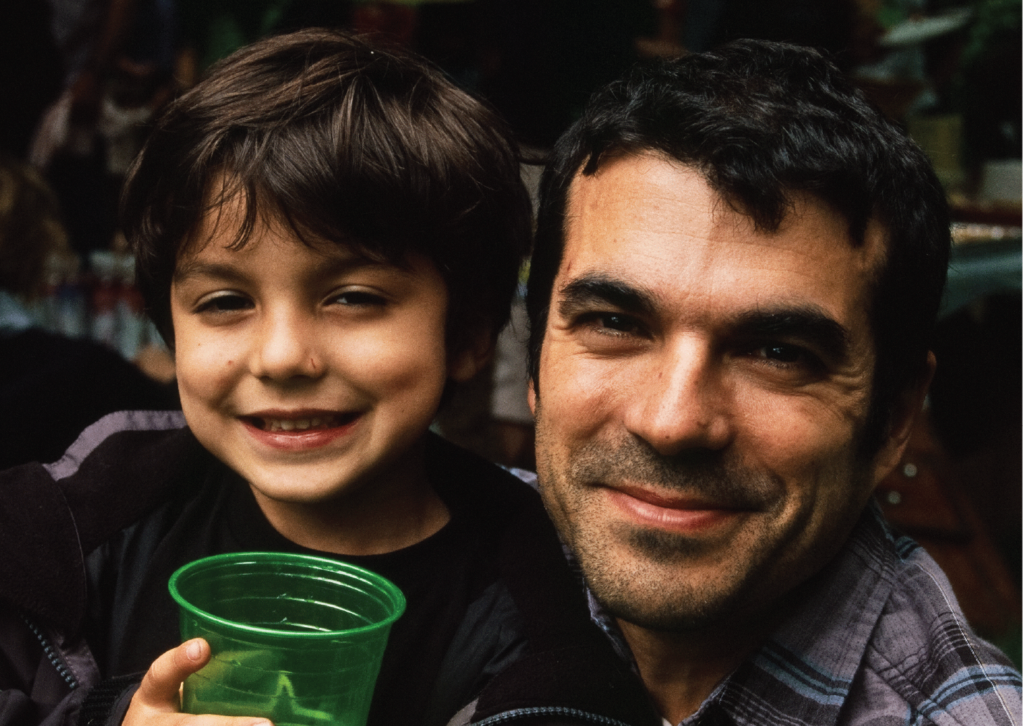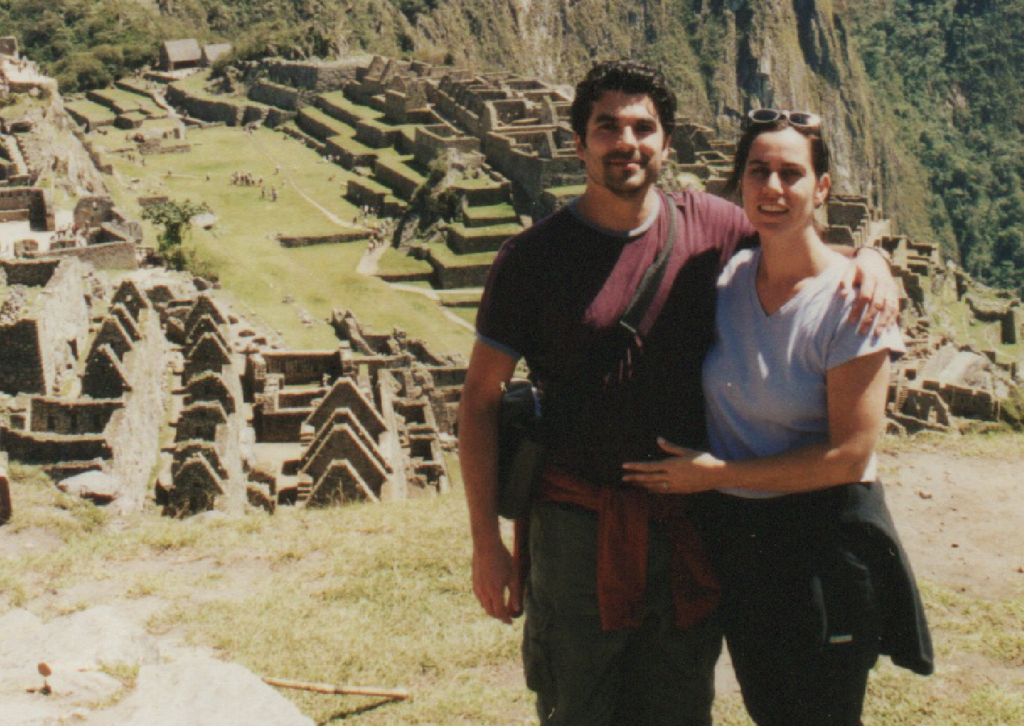In 2009, José Hernando was riding his bicycle in Seattle when he was struck by a van. In the days after the catastrophic accident, his wife, Chanel Reynolds, sat in the ICU not knowing whether her husband would ever wake up and worrying about things she never would have expected. There were initial concerns, like not knowing Jose’s phone password and being unable to immediately call his family. And then there were bigger questions, such as how much life insurance they had, and how she would pay the bills and raise their young son without José’s income. It all made a highly stressful situation nearly unbearable. “Having a few more things taken care of in advance,” she says, “would have turned the noise level down.”
Reynolds’ unpreparedness was not unusual. Over half of American adults don’t have a will, seven out of ten have not written down their end-of-life wishes, 40 percent can’t cover a $400 emergency and 25 percent have no retirement savings.
José died a week after the accident. Since then, Reynolds has devoted herself to educating others about emergency and financial preparedness, first with her website GYST (Get Your Shit Together), and now with her new book, What Matters Most: The Get Your Sh*t Together Guide to Wills, Money, Insurance, and Life’s What-Ifs. In it she weaves together her personal story in unsparing prose, while also providing critical information for any adult who wants to make sure they are prepared for the worst.
What basic things should everyone have at their fingertips in case of emergency?
The most immediate issue I had after the accident was that I didn’t have the password to my husband’s phone, nor did I have his family members’ numbers in mine. It took me hours of anguish to get that information. I suggest writing down all important contacts and having them in your phone. I also suggest writing down the passwords for your most important accounts—your phone, email, social media, laptop–-so somebody can go in and manage those things on your behalf if necessary.
Where should you put those passwords? Who should you give them to?
Give them to two people you trust. These might be the same people you name as your power of attorney or the executor of your will. I keep an original printout with all of my account information at my house. I also have them scanned and uploaded to a password-protected online cloud storage that a handful of people have access to.
A lot of us know that getting this stuff together is important but it can be overwhelming to get started.
Filling out some paperwork feels hard, but it’s something that is absolutely in your wheelhouse and skillset. If something really catastrophic happens, what’s going to make it easier on the people you care about? Sometimes that’s just updating the beneficiaries on your checking and retirement accounts, which you can do online and takes five minutes. If it will help you get it done, organize a few of your friends or coworkers and do it together. Bring in coffee or wine, and knock a couple of things off the list. However you do it, just schedule it in, the way you would changing the oil in your car.
"If something really catastrophic happens, what's going to make it easier on the people you care about?"
You say that having your financial house in order is even more critical for women because we are more at risk when something happens unexpectedly or tragically. Why?
The math is already not on our side. We get paid at least 20% less than men, more if you’re a woman of color. So we don’t have the same amount of income to save. Also, because we often work part-time or take time off, we have hundreds of thousands of dollars less when we reach retirement. Caregiving responsibilities disproportionally fall on women, so in addition to working and/or raising kids, we’re taking care of our parents or somebody else. Finally, women outlive men. Chances are good, especially if you’re in a heterosexual marriage or relationship, that you’re going to live a few—if not a dozen—years longer than your partner, and women are twice as likely to be living in poverty at retirement age. All of this contributes to the fact that we’re starting off behind and when something bad happens it’s really hard to catch up.
You recommend that everyone have an emergency fund.
Ideally, it should be enough money for six months of expenses and it should live in a long-term savings account or a CD, something you can get to, but not too easily. I realize this is really challenging, if not impossible, for many people to put aside enough money for six months, but it’s critical. Put whatever you can aside. Knowing you have some time to make big, hard decisions can be a huge gift to yourself and to others.
Let’s talk about some of the other things people need to think about. You say there are three legal documents that everyone must get in order right now—power of attorney, a living will (also called an advanced care directive), and a will.
Yes. A power of attorney document allows other people to make financial and medical decisions for you—and not necessarily in an end-of-life scenario. Had José not died, but had he required a long recovery, as power of attorney, I could have taken over things like finances for him. A living will states your end-of-life wishes. When you create one, you should be as specific as possible. Think through different scenarios. Would you want to be kept alive on machines if you’d never wake up? What if you could never come home again? What kind of engagement in the world is important to you? You need to let people know your wishes while you still can. Finally, the actual will outlines what happens after you die. You designate someone as executor who will project manage and make sure everything goes where it’s supposed to go— from who becomes the guardian of your children to who is going to get your money and your stuff. If you don’t have a will, your states’ laws will decide who your next of kin and your heirs are.
"You need to let people know your wishes while you still can."
Do you need lawyers to get all of these things in order? Is it okay to get documents online?
It depends on your situation. If you have a lot of money, if you’ve got a complicated guardianship situation, or international citizenship—with these kinds of things it’s a good idea to have an attorney take a look to make sure you’re not missing anything. If you don’t have money for a lawyer, it’s still better to have your documentation covered. An online will template is good enough for a lot of people. Just make sure to check with your state to ensure that the template you use is valid. Having something is definitely better than having nothing. Don’t forget that whatever you use should be printed, signed, and notarized. My husband and I had a will but we hadn’t printed or signed it so it wasn’t worth the paper that we hadn’t printed it on yet.
Your husband had life insurance. Is that something everyone should think about getting?
Life insurance saved my ass. We didn’t have enough, but because we had some I was able to buy myself some time. We were a two-income family with a two-income mortgage. When my husband died, we went from a pretty good income to no income overnight. If you’re considering life insurance, you need to think about what kind of financial bridge you might need to get from your old life to your new one. Will you need funds to pay off a house, pay for childcare, pay to finish your degree, etc.? Add that up into what would feel like a comfortable amount of time to not be freaking out about money at the same time you’re grieving the loss of someone close to you.
"Life insurance saved my ass. We didn't have enough, but because we had some I was able to buy myself some time."
There’s also disability insurance—short and long term.
Disability is more expensive than life insurance because you’re more likely to use it—about 25% of American adults will not be able to work for a few months or more. Short-term disability usually covers people for up to two years and it’s a good thing to have if you don’t have an emergency fund. Long-term disability is something you would need if you became disabled and weren’t able to return to work. It could potentially get you through until retirement age when social security would kick in. It can be expensive, but it can also be invaluable.
Death and money are two of our biggest taboos. How do you suggest we initiate these conversations in a way that’s helpful and actionable?
These conversations don’t need to be cloaked in sad church organ music. I’ve had the most lovely and spirited conversations when I’ve approached them as something that could be helpful or interesting.








